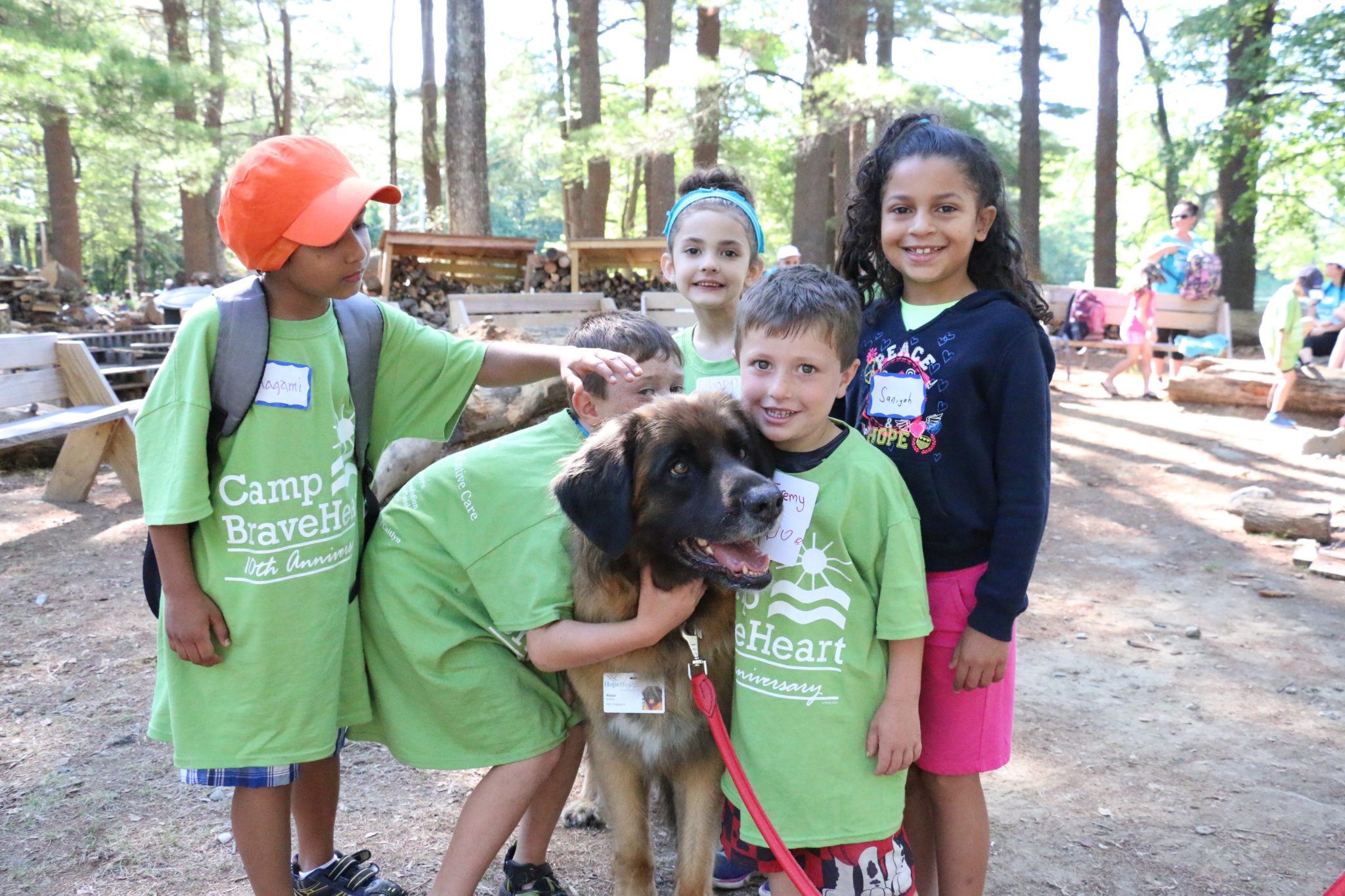This blog post was written in April 2018. Rosie passed away in March 2022 and is remembered dearly by all at HopeHealth.
Rosie is a very large and special dog—a 100-pound Leonberger—who brightens the lives of people every day as a pet therapy volunteer at the HopeHealth Hulitar Hospice Center in Providence, RI.
She has many nicknames, including Fuzzy Bear, Friendly Lion, Gentle Giant and Chocolate Moose.
She also has a real job, complete with a job description, ID badge and even her own business card listing her favorite treats and greatest accomplishment: “Rescuing us.”
Rosie is a therapy animal, and her owner is a woman named Dace Krasts. Together, they are a volunteer therapy-animal team, certified through Pet Partners, the nation’s leading organization registering therapy animals for animal-assisted interventions.
Therapy animals and their handlers help people of all ages in hospitals, pediatric care units, schools, nursing homes and other settings. They bring companionship, relaxation, emotional support and joy.
“Families can be scared when their loved one first enters hospice. Rosie and I try to help them feel more reassured, safe and comfortable in their journey.” – Dace Krasts, therapy-animal handler
The healing power of animal therapy
Every week, Rosie and Krasts visit patients, family members and staff at the HopeHealth Hulitar Hospice Center, a 24-bed inpatient setting.
Leonbergers are among the largest dog breeds and known for their loyalty, intelligence, playfulness and kindly nature. They are friendly with children and other dogs.
“Because Rosie’s so big and soft, people want to hug her all the time,” Krasts said. “Regardless of what condition they’re in, patients are often comforted by her wet nose and calm presence.”
The satisfaction of bringing Rosie into a hospice setting goes beyond what Krasts ever expected.
“Families can be scared when their loved one first enters hospice. Rosie and I try to help them feel more reassured, safe and comfortable in their journey,” she said. “Then I often hear, ‘Hospice is so wonderful. I wish we had started it so much sooner!’”
How Rosie breaks the ice
For people who are terminally ill, animal-assisted therapy has been shown to address the basic needs of love, belongingness and self-esteem, according to a 2014 study published in the psychology journal of Mount Saint Mary College.
Animal therapy is also associated with natural pain management and emotional support, a decrease in loneliness and an increase in socialization.
Rosie even makes an impact at HopeHealth Hulitar Hospice Center when she’s not there. When visiting patients, Krasts sometimes leaves behind Rosie’s business card on the bedside table. If a social worker or chaplain later stop by, that card can spark a conversation—“Oh, I see you had a visit from Rosie today”—opening the door for a therapeutic connection.
Though people of all ages respond to her, Rosie’s biggest fans are children. That’s why she and Krasts are also part of the welcoming team at HopeHealth’s Camp BraveHeart, an annual, two-day summer retreat for children coping with the loss of a loved one.
Rosie helps set the tone for campers. Krasts recalled a group of teenagers who didn’t know each other hanging out on a rock, each in their own bubble.
“When Rosie and I came over to say hi, they all circled in close to pet and hug her and began talking to each other. Rosie broke the ice,” she said.
If you are interested in volunteering at HopeHealth, email VolunteeratHopeHealth@HopeHealthCo.org or call (833) 818-1919.

